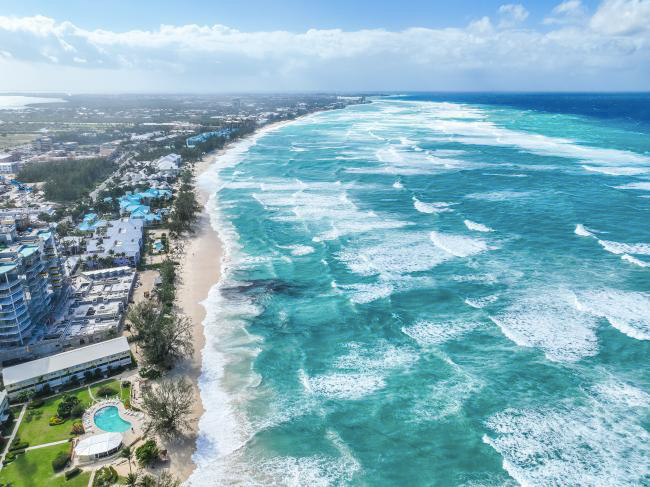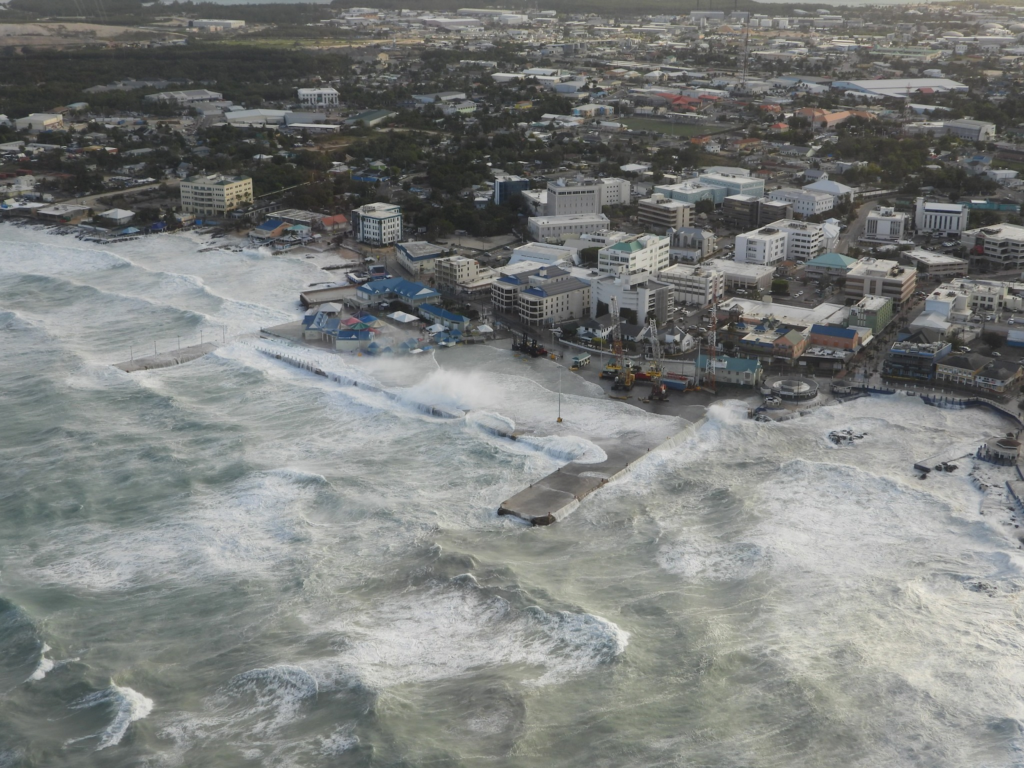Menu
Close
Amplify Cayman


Image 1 (left). Photo Credit: Jon Schutte. Waves of up to 9’ high batter luxury coastal properties along Seven Mile Beach, Grand Cayman. | Image 2 (right). Photo Credit: Royal Cayman Islands Police Service. The harbor of George Town, Grand Cayman – L-R: multistory office buildings and banks shadowing over coastal restaurants, cruise terminal and port (blue roof buildings and area with cranes on concrete dock).
Amplify Cayman is a grassroots organisation that works to educate and empower civic action and increase effective democratic participation in the advocacy of sustainable development within the Cayman Islands.t. Since their inception, the team has helped register over 1,000 voters, produced campaigns to galvanize the community to protect the islands natural resources and oppose unsustainable development, and met with Members of Parliament and civil servants to amplify Cayman’s socioeconomic needs based on outreach and research we have conducted.
On February 6, 2024, the three Cayman Islands were struck by a historic, intense Nor’Wester storm that brought near gale-force winds, which caused damage to coastal road infrastructure, luxury homes, tourist accommodations, and businesses. In the Cayman’s infancy as a country, these annual storms gave, pun intended, rise to stilted wall houses our Islands’ built heritage is now defined by. Very few modern homes are built this way, which is a cause for concern to many, not least because climate scientists have predicted the 2024 hurricane season to be quite active for the Caribbean, but also because the effects of damage to coastal properties ripple predominantly to those who don’t have an equitable ability to regain what is lost. This particular storm hasn’t led to a boom in disaster capitalism, it mostly just put a short pause on the construction of unsustainable coastal developments. However, prior local major weather events have brought disaster capitalism to our shores, and this storm season will, more likely than not, bring the same if it is as strong as predicted.
In response to the February 2024 Nor’Wester, the Cayman Islands Department of Environment published a coastal development setback map, which highlights the recommendations they made to the Planning Department who approved the buildings that were greatly impacted by the Nor’wester. The map showed where the DOE recommended that these properties be constructed a certain distance from the sea, and revealed how their recommendations to approve setbacks on a case-by-case basis (vs the current model of a standard setback limit) were largely ignored. It is Amplify’s sincere hope that the map will be used as a learning lesson for future developments – we will continue to do our part to help Cayman’s citizens play their role in demanding that our coasts remain protected, to promote sustainable development, and to increase local activism to prevent disaster capitalism.

Showcasing stories of Caribbean organizations at the foreground of the struggle against disaster capitalism in the Caribbean. Our network of participants in the Greater Caribbean region connect, learn, share their hands on responses to the impacts of the twin threats of the climate crisis and disaster capitalism in our region.
WAVE (Progressive Reform Movement)
Global Challenges Research Fund
Open Society Foundations
All Rights Reserved – strongercaribbeantogether.org 2022
All Rights Reserved – strongercaribbeantogether.org 2022
In the tumultuous aftermath of disasters, it is easy to feel isolated and alone, but you are not.
We, a network of Caribbean-wide community organizers who stand in solidarity with those affected the twin threats of the climate crises and disaster capitalism, a phenomenon that exacerbates the suffering of vulnerable communities.
We want you to know that your stories matter. We are here to listen, to support, and to amplify your voices.
We believe that together, we can challenge the forces of disaster capitalism and advocate for more sustainable, inclusive and equitable decision-making.
Join us in solidarity. Share your experiences and let’s build strong communities that thrive together.
As the wider world braces for the climate change, Caribbean communities are already struggling with its effects. Small local communities, small scale farmers and coastal communities are disproportionately affected. Political decisions, power dynamics and laws often compound the catastrophes and silence bottom up solutions.
There are ways in which you can help.